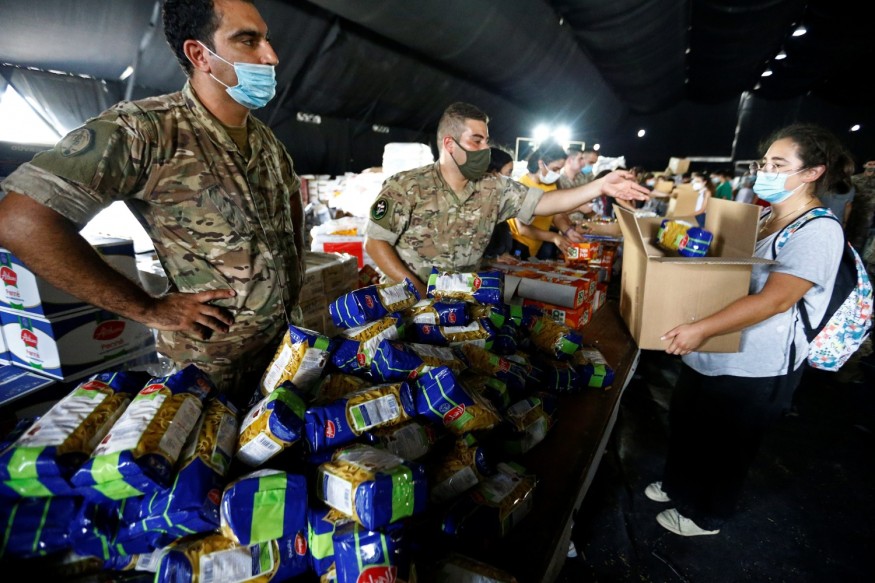On the evening of August 4, a powerful explosion in the city's port in Beirut, Lebanon sent a massive orange fireball in the sky, followed by a gigantic show wave that had so much force that it overturned cars, damaged buildings, and shook the ground across the Lebanese capital.
The explosion claimed the lives of 220 people, left 110 people missing, injured more than 5,000, and left 300,000 homeless. The culprit, the authorities point is the 2,750 tonnes of ammonium nitrate, an ingredient commonly used for agricultural fertilizer and a component for explosives. The chemical ingredient was reportedly stored in a warehouse for six years without safety measures in place.

READ: Beirut Explosion: How Does Ammonium Nitrate Affect the Environment?
The International Committee on Red Cross said that the survivor's needs were huge—they need badly need shelter, food, cleaning detergents, and whatever they can get to pick up what is left of their homes.
The explosion has heavily damaged two main water and electricity stations. The country's main grain silo was also severely damaged.
Even before the explosion, the country has been suffering from a significant economic downturn.
The explosion has pushed families into hunger and poverty, and the United Nations warned that a humanitarian crisis is looming unless food and medical aid are swiftly and expertly delivered.
International donors pledged $297m in aid for Lebanon as of Sunday. In the wake of massive resignation of key government officials, a commitment of several nations to help Lebanon underscored that the assistance should be directly delivered to the Lebanese population, with utmost efficiency and transparency.
READ MORE: Derecho Causes Havoc Across Midwest
Help Survivors of the Beirut Explosion Through GlobalGiving
Are you interested in helping but do not know how to channel your support? GlobalGiving can help you send your donations, saving you the hassle of lots of tedious paperwork. GlobalGiving community has years of expertise and experience in crowdfunding and charity work to ensure that your help gets delivered to those who need it most in Lebanon.
Since 2002, GlobalGiving has made it safe and secure for people and companies to support the causes they care about through our long-term partnerships with thousands of high-impact organizations in 170+ countries. GlobalGiving is a top-rated (4-star) charity on Charity Navigator and is accredited by the BBB Wise Giving Alliance.
GlobalGiving connects nonprofits, companies, and donors in nearly every country in the world to accelerate community-led change. When disaster strikes, GlobalGiving makes it possible for local nonprofits to fundraise on an international scale and access the support they need to thrive.
Right now, there are local GlobalGiving partners in Lebanon that are responding to the emergency, providing medical supplies for the wounded, giving food to displaced families, and repairing damaged buildings.
You can support vetted, local projects that are already making a difference in Beirut through a unique giving campaign launched by GlobalGiving in August.
How does it work?
GlobalGiving is the largest global crowdfunding community connecting nonprofits, donors, and companies in almost every country. The organization prides itself on being well-positioned to respond immediately to natural disasters and committed to supporting recovery.
It is a nonprofit organization that makes it easy and safe to provide local organizations in partner countries the tools, training, and support necessary to become more effective in responding to disasters.
Since 2002, the GlobalGiving Community has helped raise more than $506M from 1,149,525 people who have supported 26,995 projects in 170 countries.
READ NEXT: Mauritius Citizens, Groups Try to Contain Oil Spill to Protect Coastline and Mahebourg Lagoon
© 2025 NatureWorldNews.com All rights reserved. Do not reproduce without permission.





